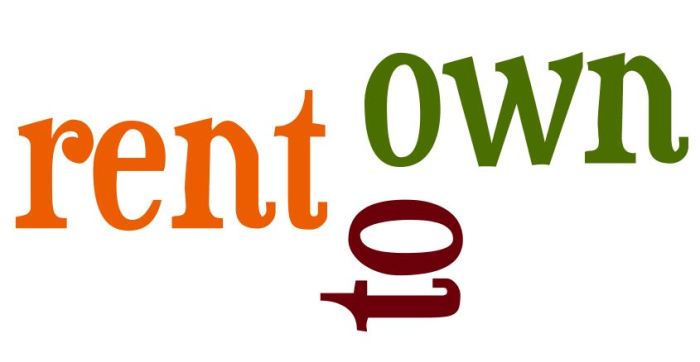Rent My Property: Key Considerations and Strategies
Embarking on the journey of renting out your property involves a multitude of factors and decisions. From analyzing the rental market to finding the right tenants, each step plays a crucial role in the process. This guide delves into the essential aspects of renting out your property, providing insights and strategies to navigate this endeavor successfully.
Factors to Consider Before Renting Out Your Property

Before deciding to rent out your property, there are several key factors that potential landlords should consider. It is essential to conduct thorough research and analysis to ensure a successful rental experience.
The Importance of Conducting a Rental Market Analysis
When considering renting out your property, it is crucial to conduct a rental market analysis. This involves researching the local rental market to understand rental rates, demand for rental properties, and competition in the area. By conducting a rental market analysis, landlords can determine the optimal rental price for their property, attract potential tenants, and maximize their rental income.
Legal Requirements and Regulations
Before renting out a property, landlords must be aware of the legal requirements and regulations associated with rental properties. This includes understanding landlord-tenant laws, rental agreements, security deposit regulations, eviction procedures, and fair housing laws. It is important to comply with all legal requirements to protect both the landlord and the tenant and avoid any potential legal issues.
Pros and Cons of Renting Out Your Property

Renting out your property can be a lucrative venture, providing you with a source of passive income. However, there are also potential drawbacks that you need to consider before taking the plunge.
Advantages of Renting Out a Property
- Generate Passive Income: Renting out your property allows you to earn money without actively working for it. This can be a great way to supplement your income or save for future investments.
- Tax Benefits: Rental income is typically taxed at a lower rate than other forms of income, providing you with potential tax advantages.
- Property Appreciation: While renting out your property, you also have the opportunity to benefit from any increase in property value over time, potentially leading to significant returns.
Potential Drawbacks of Renting Out a Property
- Problematic Tenants: Dealing with difficult tenants can be a major headache, causing stress and potential financial losses if they damage your property or fail to pay rent.
- Maintenance Costs: As a landlord, you are responsible for maintaining the property, which can incur unexpected costs and eat into your rental income.
- Vacancy Risks: If you are unable to find tenants or experience frequent vacancies, you may struggle to cover your mortgage payments and other expenses.
Short-Term Rentals vs. Long-Term Rentals
- Short-Term Rentals (e.g., Airbnb): Pros include higher rental rates and flexibility for personal use, but cons may include more frequent turnover and additional management responsibilities.
- Long-Term Rentals: Pros include stable rental income and less frequent turnover, but cons may include longer lease commitments and potentially lower rental rates.
Steps to Prepare Your Property for Rent
When getting your property ready to rent out, there are several important steps to take to ensure it attracts potential tenants and commands a competitive rental price. From repairs and upgrades to staging, here is a checklist to guide you through the process.
Checklist of Tasks
- Inspect the property for any necessary repairs, such as leaky faucets, broken appliances, or damaged flooring.
- Upgrade key features like kitchen appliances, bathroom fixtures, and lighting to enhance the overall appeal of the property.
- Paint the walls with a fresh coat of neutral colors to create a clean and inviting atmosphere for potential tenants.
- Deep clean the entire property, including carpets, windows, and outdoor spaces, to make it move-in ready for tenants.
Importance of Staging
Staging your property can significantly impact how quickly it rents out and the rental price you can ask for. By arranging furniture and decor in a way that highlights the property's best features, you can make it more appealing to potential tenants and help them envision themselves living in the space.
Tips for Setting Rental Price
- Research current market trends and comparable rental properties in the area to determine a competitive rental price for your property.
- Consider factors like location, size, amenities, and condition of the property when setting the rental price to attract tenants while maximizing your return on investment.
- Be open to adjusting the rental price based on feedback from potential tenants and market demand to ensure your property remains competitive in the rental market.
Finding and Screening Tenants
Finding the right tenants for your rental property is crucial to ensure a smooth and profitable renting experience
Advertising a Rental Property
- Utilize online rental listing websites such as Zillow, Trulia, and Craigslist to reach a wide audience of potential tenants.
- Consider using social media platforms like Facebook and Instagram to promote your property to a targeted audience.
- Utilize traditional methods like yard signs and newspaper ads in local publications to attract potential tenants in the area.
Tenant Screening Process
- Perform background checks to verify potential tenants' criminal history, eviction records, and past rental experiences.
- Conduct credit evaluations to assess tenants' financial responsibility and ability to pay rent on time.
- Check references from previous landlords to gain insights into tenants' behavior and reliability as renters.
Comprehensive Rental Application Form
Creating a detailed rental application form is essential to gather necessary information from potential tenants and make informed decisions. Include sections for personal information, rental history, employment details, and references. Additionally, request authorization to run background and credit checks to ensure a thorough screening process.
Managing Rental Properties

When it comes to managing rental properties, landlords have a range of responsibilities that are crucial for maintaining a successful rental business. Effective communication with tenants, handling tenant issues, maintenance requests, and rent collection are key aspects of managing rental properties.
Responsibilities of a Landlord
- Regular maintenance and repairs to ensure the property is safe and habitable.
- Adherence to local landlord-tenant laws and regulations.
- Responding promptly to tenant inquiries and concerns.
- Managing finances related to the property, including rent collection and budgeting for expenses.
Effective Communication Strategies
- Establish clear communication channels with tenants through phone, email, or a dedicated online portal.
- Be proactive in addressing any issues or concerns raised by tenants to maintain a positive relationship.
- Provide clear instructions for rent payment, maintenance requests, and emergency contacts.
Tips for Handling Tenant Issues
- Listen actively to tenant complaints and work towards finding a mutually beneficial solution.
- Document all communication with tenants to avoid misunderstandings or disputes.
- Address maintenance requests promptly and ensure repairs are carried out efficiently.
Maintenance Requests and Rent Collection
- Establish a system for tenants to submit maintenance requests and track the status of each request.
- Set clear guidelines for rent payment, including due dates, late fees, and accepted payment methods.
- Follow up with tenants who are late on rent payments and enforce any consequences Artikeld in the lease agreement.
Final Review
In conclusion, renting out your property can be a rewarding venture if approached with careful planning and consideration. By understanding the key factors, pros and cons, and steps involved, you can effectively manage your rental property and create a positive landlord-tenant relationship.
Take the insights from this guide and embark on this exciting opportunity to generate passive income through renting out your property.
Essential Questionnaire
What factors should I consider before renting out my property?
Before renting out your property, consider factors such as market demand, rental rates, property maintenance, and legal obligations.
What are the advantages of renting out a property?
Renting out a property can generate passive income, build equity, and provide tax benefits to property owners.
How can I effectively advertise a rental property?
You can advertise a rental property through online listings, social media platforms, real estate websites, and local classifieds.
What should be included in a comprehensive rental application form?
A rental application form should include personal information, rental history, employment details, references, and consent for background checks.